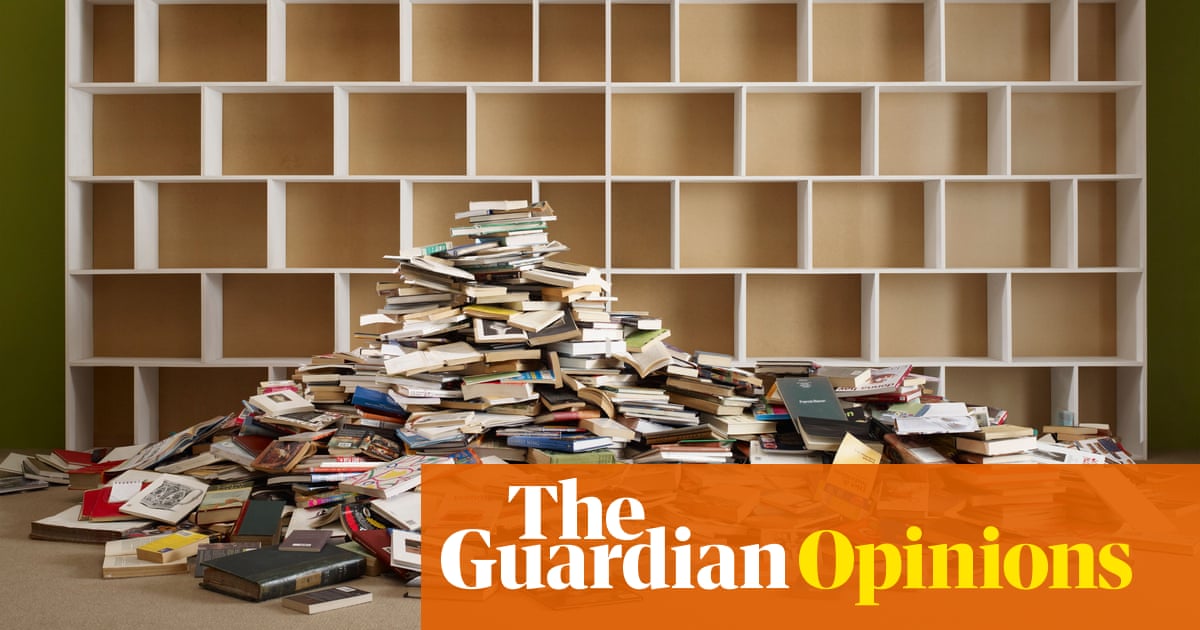
I have a library of self-help books on the shelf in my living room. Dozens of books that promise to solve any personal issue, earn me millions and declutter my life. None of them have been read beyond the first five pages, but it’s nice to know the answers are there, I guess.
Each book I have ever bought has received the same treatment. I read the introduction as part of a new “no screens after 9pm” routine that I am going to commit to for life, I smugly put it down on my bedside table, and then a month later I put it back on the shelf after it has served its purpose as a coaster.
I’ve spent a lifetime struggling with reading – not the ability to read, but the activity of reading. I always felt as if I ought to have read all of the “classics” first before reading anything modern. Nonfiction didn’t come with that same pressure, but whether fiction or nonfiction, knowing quite how much of a book was left to read felt like a suffocating burden. Reading as something one must do consistently made me panic, like signing up to a lifelong diet you’re going to hate. During my A-level in English literature, I set myself a number of pages to read, as if I were portioning out some grim medicine and not a perfectly interesting story by Sebastian Faulks. I would skip through pages of Tess of the d’Urbervilles until I reached a part where one of the characters said something, meaning I barely read any of it, given how much of the book seemed to be about trees.
I loved English, and enjoyed interpreting poems and plays. I was that student, who would talk at length about the significance of Curley’s wife’s lipstick being red in Of Mice and Men. The thought of reading books, though, was enough to rule out studying English at university. Art history, then, seemed an ideal subject – lots of pictures and opinions, and papers or essays instead of books.
Reading widely is one of the first things recommended to budding young writers, and my mental battle with reading used to leave me feeling ashamed to claim I was a writer, even though I was having articles published regularly.
In 2022, aged 24, I received an ADHD diagnosis. This made sense of the anxiety that would wash over me as my concentration dissolved when I opened a book. The diagnosis helped me to stop berating myself and led to my decision never to buy a book again. Now when people recommend books to me, I simply say “I don’t read books”, in the same way someone might say “I’m a vegetarian” when offered a steak. I know that even if I’m interested in what the book is offering, it is not going to get read. Much like the bag of spinach at the bottom of the fridge: it is not going to get used so I shouldn’t buy it.
Giving myself permission to stop reading books has stopped the cycle of shame, and has allowed me to refocus my attention on what has become one of my favourite things – the audiobook. I had previously written them off as “cheating”, telling myself that I ought to be able to read the printed version, if only I was more disciplined. Now audiobooks are the only option for me, and I love them. I play them at 1.5x speed, and I have “read” more books in the last year than I have in total since primary school. Information used to be imprisoned, but now I can access it easily. It used to be frustrating thinking about how much knowledge was being held hostage inside the books I’d never be able to get through, but now I can “read” that information anywhere.
I know that I need exposure to other authors’ work, so I make an effort to consume other media like documentaries, magazines and online articles. Along with audiobooks, these have helped to vary my sentence structures, broaden my vocabulary and feed my interest in my subject. It certainly isn’t a perfect exchange – audiobooks have done little for my use of punctuation. I often end up writing in a way that makes sense when spoken aloud, but less so when read. However, quitting my lifelong battle with reading books has undoubtedly reinvigorated my desire to learn, to appreciate other people’s work, and to shed the shame I previously felt calling myself a writer – one who has never read Wuthering Heights.
-
Verity Babbs is an art critic, presenter, and host of Art Laughs art-themed comedy nights
